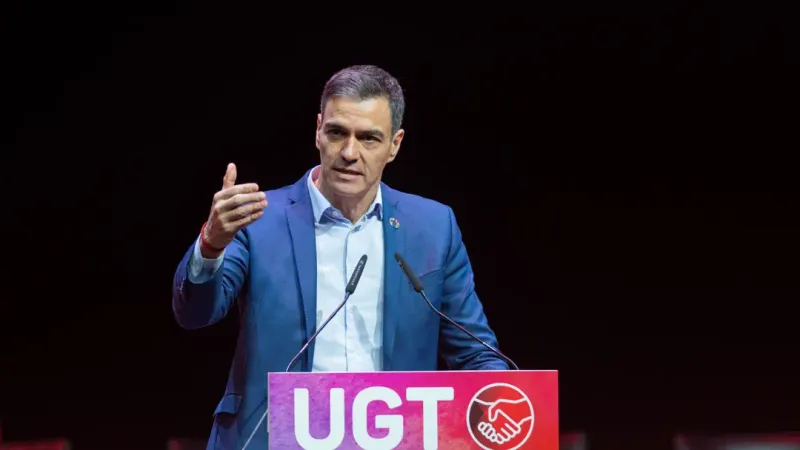Blinken Meets With Middle East Leaders Amid Regional Tension
On Monday, US Sec. of State Antony Blinken visited the UAE and Saudi Arabia to discuss the humanitarian situation in Gaza, the need to prevent the war from escalating into a full-scale regional conflict, and the US 'commitment to securing lasting regional peace that ensures Israel’s security an...
0:00
/1861
Facts
- On Monday, US Sec. of State Antony Blinken visited the UAE and Saudi Arabia to discuss the humanitarian situation in Gaza, the need to prevent the war from escalating into a full-scale regional conflict, and the US 'commitment to securing lasting regional peace that ensures Israel’s security and advances the establishment of an independent Palestinian state.” After meeting with the UAE's leader, Blinken met the Saudi Crown Prince, hoping to revive discussions over normalizing diplomatic relations with Israel; Blinken is expected to visit Israel soon.1
- This visit is the fourth to the region to be made by Blinken in three months. It comes as Israel-Hezbollah clashes intensify, Yemen's Iran-backed Houthis attack Red Sea commercial ships, and Tehran-backed militant groups target the US's Iraqi bases.2
- Blinken's visit comes as two US Senators said on Saturday after visiting the Rafah crossing on the Gaza-Egyptian border that Israeli procedures to inspect aid entering the strip were cumbersome and seemingly arbitrary, calling the system to ensure that aid deliveries within Gaza don’t get hit by Israeli forces “totally broken.”3
- Elsewhere, an Israeli strike on Monday killed Hezbollah commander Wissam al-Tawil, deputy head of a unit in the group's elite Radwan force. He was in a car struck by Israeli fire in the village of Majdal Selm, near the border with Israel. Al-Tawil was one of the most senior Hezbollah commanders killed since the war began three months ago — more than 130 Hezbollah fighters have been killed since Oct. 7.4
- Israel's Defense Minister said on Sunday that Israel isn't afraid to go to war with Hezbollah in Lebanon, as the country is 'fighting an axis, not a single enemy.' Hezbollah on Saturday launched its largest barrage of rockets into northern Israel since the war began, with Blinken reaffirming the US’s commitment to Israel's security. He added that Israel wasn't interested in an escalation with Hezbollah but was 'fully prepared to defend themselves.”5
- In other developments, Al Jazeera reported that Hamza Dahdouh, the son of Wael al-Dahdouh, a prominent Al Jazeera journalist, was killed in southern Gaza alongside a colleague, Mustafa Thuraya. Wael al-Dahdouh has become particularly well-known to viewers across the Middle East after learning live on-air that his wife, son, daughter, and grandson were killed in an Israeli air strike in the first month of the war; Hamza is Wael's fifth family member to die from an Israeli strike.6
Sources: 1New York Times, 2Guardian, 3Associated Press, 4Reuters, 5The Times of Israel and 6The Hill.
Narratives
- Pro-establishment narrative, as provided by POLITICO. The US is doing everything it can to both ensure that Israel can eliminate Hamas's military capabilities and prevent regional escalation. Israel must be able to defend itself from terrorist attacks, whether from Gaza or elsewhere, and is taking the right steps to wind down its military operations in Gaza, as it is not in the US or Israel's best interest to see the conflict escalate. Nevertheless, the US is prepared to defend its allies in the region and deter threats to regional and global security. Blinken is working hard to advance this strategy.
- Pro-Israel narrative, as provided by Jerusalem Post. Though this has been a tragic war, Israel must eliminate Hamas and restore deterrence with Iran and its proxy Hezbollah. Hezbollah is a terrorist army with far greater military capabilities than Hamas, and Israel cannot allow its citizens residing in the north to live under the constant threat of terrorist attacks. The UN resolution that ended the 2006 war with Hezbollah has failed to ensure Israel's security, and if some sort of new arrangement is not made, Israel will be forced to intervene. Likewise, in Gaza, Hamas's military capabilities must be eliminated to ensure Israel's security.
- Pro-Palestine narrative, as provided by Middle East Eye. Israel continues to demonstrate that its war is not against Hamas or Hezbollah but against the Palestinian and Lebanese people as a whole. Nowhere in Gaza is safe, and Israel has effectively rendered the north of the strip unlivable. Israel is killing Palestinians at an unprecedented rate and clearly wants to make the Gaza Strip unlivable. Though the US, Israel's biggest ally, wants to minimize the war's intensity, it must instead exert more pressure to end the war completely.
- Narrative D, as provided by Al Mayadeen. Hezbollah will deal with Israel's belligerent and aggressive behavior at a time it deems most advantageous, as the Lebanese resistance does not just react to security incidents but makes painstaking calculations to both deter Israel from violating Lebanon's sovereignty and avoid an unnecessary and destructive conflict. Israel's leadership should keep in mind that Hezbollah is more than ready for an all-out war and can inflict serious losses. Israel, backed by the US, is committing atrocious crimes in Gaza to which Hezbollah has been forced to respond.







